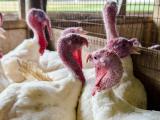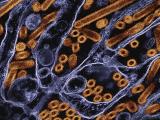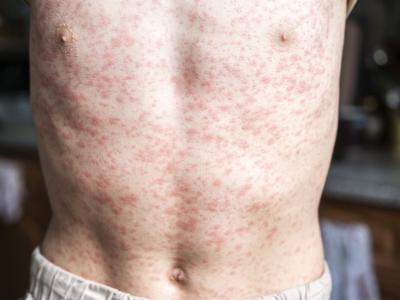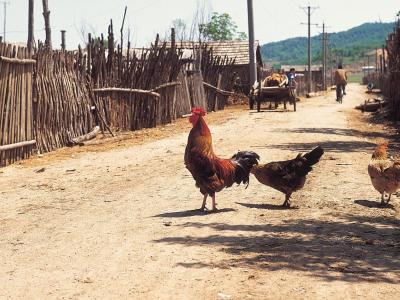Nov 17, 2010 (CIDRAP News) – Health officials in Hong Kong today raised its flu pandemic alert level to "serious" after an H5N1 avian influenza infection was confirmed in a 59-year-old woman who had recently traveled to mainland China.
The woman was admitted to the hospital on Nov 12 for persistent fever and a cough with blood-tinged sputum, according to a press release today from the Hong Kong Center for Health Protection (CHP). She has been diagnosed as also having pneumonia and is in serious condition.
A CHP spokesman said samples from the woman tested positive for H5N1, and more tests on the virus are under way.
An investigation into the source of the woman's illness revealed she had traveled to the mainland with her husband and daughter between Oct 23 and Nov 1, during which she had no contact with live poultry nor visited any farms. She started experiencing a runny nose the day after she got back and first reported having a fever and cough on Nov 5.
The CHP said her 60-year-old husband recently had a runny nose and productive cough but has since recovered.
At a press briefing today, Dr York Chow, Hong Kong's secretary of food and health, said that although it appears the woman's infection is an imported case, officials can't yet rule out the possibility that she could have been infected in Hong Kong, according to a transcript of the English portion of the briefing.
Chow said that while in China the woman had visited Shanghai, Hangzhou, and Nanjing and had been to live-bird markets, Xinhua, China's state news agency, reported today.
Though the woman experienced her first symptoms the day after she returned from the mainland, the flu incubation, usually up to 2 weeks, can sometimes be as short as a day, Chow said. "The viral studies might be the best indicator whether this is a virus from the more northern part of China or in the southern part of China," he said.
As part of its pandemic flu activation plan, which, at "serious" is at the second of three response levels, Hong Kong officials have set up a telephone line to field calls from the public and have increased surveillance by testing all serious pneumonia cases for H5 influenza. The CHP said it was in touch with mainland and hospital authorities about the H5N1 case.
Hong Kong reported its last H5N1 infections in 2003 when the virus was confirmed in two family members who had recently traveled to China. Since then each year the region's veterinary authority has found the H5N1 sporadically in wild birds. The last outbreak in poultry was reported in 2008, which affected a single farm. There have been no positive results from market surveillance since one report in 2008.
In 1997 the first known human H5N1 infections were detected in Hong Kong, where 18 cases were reported, including six deaths, according to a WHO timeline of major H5N1 events.
If the case is confirmed by the World Health Organization (WHO), it will be China's second H5N1 case this year and the 40th since 2003. The country has had 26 confirmed H5N1-related deaths.
See also:
Nov 17 Xinhua story
Nov 17 CHP press briefing transcript
WHO H5N1 timeline of major events


















